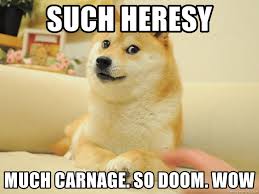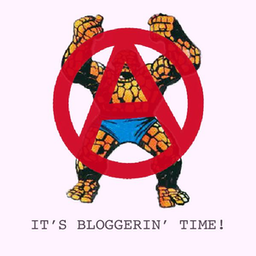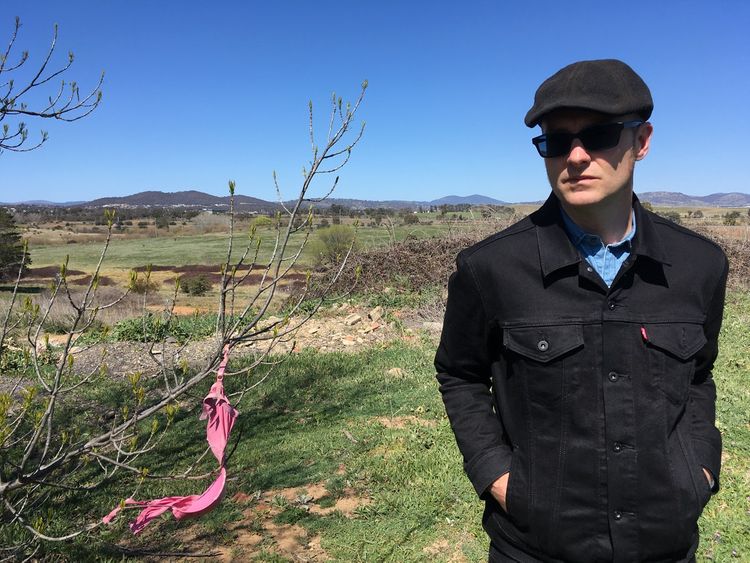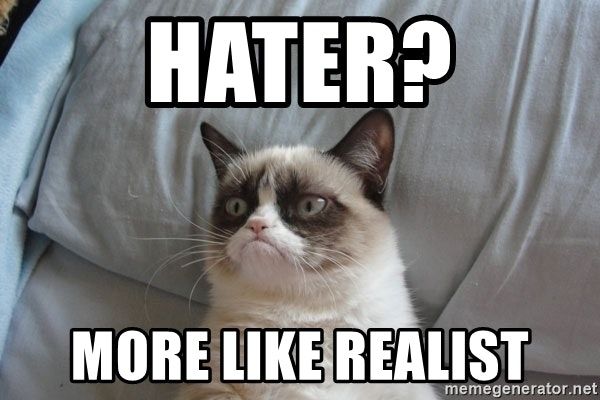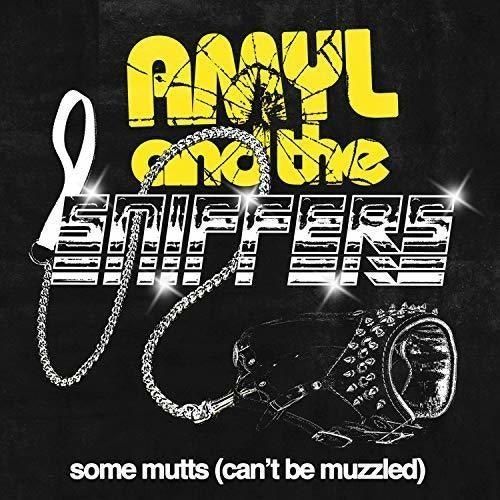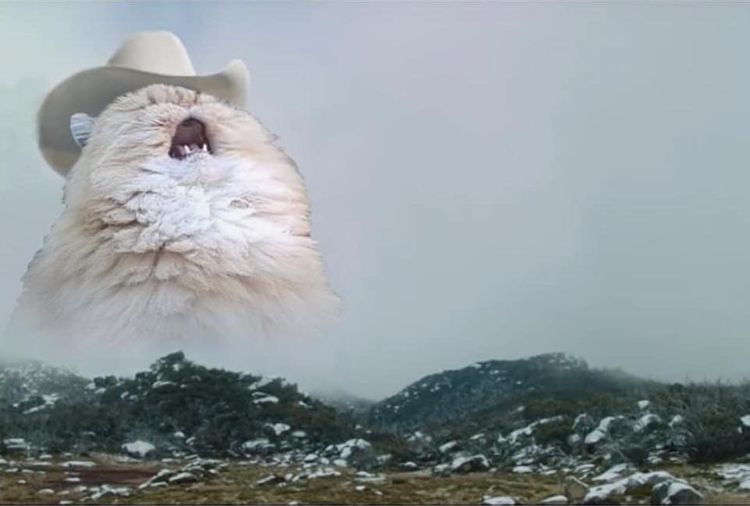Hands Up, Who Wants To Die
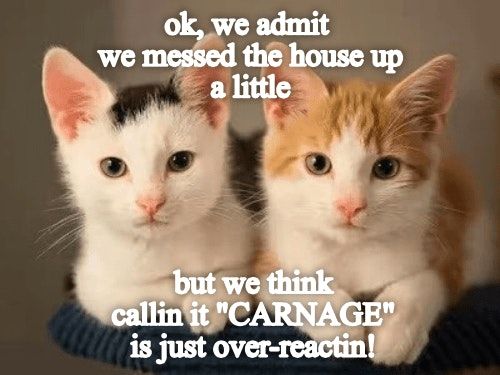
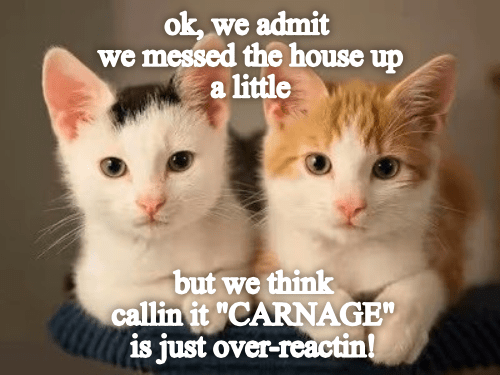
There are few artists that I’m more of a prick about than Nick Cave. I lash out like a teething badger when I feel like his art is underappreciated. I take that petulance up a thousand notches when I feel like his art is overrated. I hate-read his blog and I hate-read the sarcophagus pussycats who take to social media to call him out for what he says on his blog. Even when I agree with either. I firmly believe that the critics who find him pretentious or pompous have small, single-cell, souls. I firmly believe that the critics who find him profound and transcendent are humorless hacks who misapprehend the hearts of every goth who did or didn’t kiss them. And that’s the critics I like! As with all fans, my ardour for my favorite singer is possessive and cruel and, even under the guise of wanting to both share my joy and have my joy understood, entirely self-centered. I want everyone to love Nick Cave as I do, but only specifically as I do. But they, the masses and critics alike, to the tune of “Maps,” love him incorrectly. Not like me; The Nick Cave Getter. I understand that not all fandoms are like this. Some are truly generous in their enthusiasm. But I came up with pre-Nirvana punk. Irrational, snobbish ownership is baked into my DNA. I figure if my tastes doomed me to settle for the meager fare of Lady Gaga or The Grateful Dead, I too would retreat into the comforts of a community. I’m not so book smart or world dumb or arrogantly pampered as to give a solitary fuck for Objectivism, but I’m an asshole liberterian about Nick Cave.
A reasonable person could make the argument that it’s I who misunderstand Nick Cave. After all, doesn’t he obsessively sing of romantic love and existential grace? Aren’t his songs populated with characters drawn from decades of shared literature (O’Conner, Berryman, etc.) and folk music tradition? What are murder ballads if not early and ancient Didion-esque tales we all tell to live? And, finally, what to make of Nick Cave & The Bad Seeds live performances? All that leaning-in-and-touching-hands? What’s the difference, after all, between pantomime Pentacostal and the real, snake shaking church? It’s all community. I know it. I both accept and grok this truth. I also mean, as much as I mean anything, what I said before. God put me on this earth to love my family, love my girl, love my cats, and to wrestle, like Jonah wrestled the whale, with the art and persona of one Nicholas Edward Cavern. If embracing destiny makes me God’s bitch, so be it. Take a moment to admire my shiny coat and let me shake my tail in the sun.
The reason for this round of wrestling/wagging/what-have-you is the release of Carnage, Nick Cave’s new collaboration with his longtime muse, and member of The Bad Seeds, Warren Ellis. The intention to record a new album was announced in December on The Red Hand Files in an answer to multiple fans' despair at COVID mandated tour cancellations. The specifics (as they were) of Carnage were announced via the Official Nick Cave dot com site in January. Then, with no more announcements, Carnage appeared. A welcome bit of warmth at the end of a typically brutal February.
I use “warmth” loosely, but not crazily so. And I call Warren Ellis “Cave’s muse” intentionally. Not that the two men’s work, be it as parts of The Bad Seeds or Grinderman, or doing soundtrack work as a duo, isn’t fully collaborative. But I’d argue that, beyond any teams or partnerships, it’s Ellis that’s held the greatest influence on the sonic choices Cave has made in the last decade. I have no proof of this. It’s not a hill I’ll die on. But, as Cave has moved further and further from the constraints of conventional songcraft, it’s his violinist, who first made his mark in the exploratory dark-jam band The Dirty Three, whose pawprints are most evident on the studio glass. The evidence can be read, with a small amount of reaching, from the two mens’ filmed interactions shown in One More Time With Feeling, the 2016 film documenting the aftershocks of the death of Cave’s son and the fraught making of the album that was sort-of-not-really about it; Skeleton Tree. But the main evidence is in the film soundtrack work Cave and Ellis have done together since 2005’s The Proposition. The sheer volume of it, weighed against the instincts towards piano balladry shown by Cave-left-alone and the other Bad Seeds rock and folk tendencies, and combined with the pudding proof of the last three Cave albums (including Carnage), make me confident in saying that it’s usually Warren Ellis who wants to bring in the drones, 12 tone viola, and pedal board that stretches from Melbourne to the Moon.
Now, as a not particularly admirable rule, I don’t much care about ambient music, or even soundtrack music. I do not care about quasi classical movements, or spaghetti-lite expressions of mounting dread. I enjoy movies, but with only a few exceptions (Carnival of Souls comes immediately to mind) I’m mainly in it for the dialogue and shadows, the getting of the girl in space, the occasional cameo of Wallace Shawn. Not to say I actively dislike soundtracks, but I’m hardly an appreciator. Nor do I have any special affinity for real or manufactured field recordings; soundscapes that can be mistaken for the ambient sound that scapes around me when I open my apartment window. I love the sound of traffic, and the city, and the buzz of my refrigerator. But the idea of outsourcing any of that lovely, life-affirming tedium to a third party, when there’s the perfectly good options of either sitting with yourself and your own internal noise (or, better, just opting to put on The Miracles Greatest Hits), is not for me. These are not moral arguments or judgments. If you want to watch Fistfull of Dollars with the screen off or pay top Discog dollars for the sound of 5G towers reading your thoughts and tree frogs farting, I commend your wild discernment. But I like songs. They can be weird songs, or crazy songs, or twelve minute long songs, with digressions and repetitions fighting each other like rival gangs of subway pizza rats, but, in the end, there needs to be more song than vibe (if you want to dance with me) (a song that embarrassingly makes a similar point, and that I loathe enough to want to change my mind… but I can’t).
This is all an intentionally roundabout way of saying that, as someone who genuinely considers themselves personally indebted to the artwork of Nick Cave and all the outward adventures and depth of feeling Cave’s work has both permitted and made happen, I think the 2013 Nick Cave and The Bad Seeds album, Push The Sky Away, is a flatout masterpiece that I want played at my wake, that I think 2016’s Skeleton Tree is a gorgeous panorama of imagery and sound that I love even if I couldn’t, gun to my head, necessarily sing anything off of, and that I have made it all the way through Ghosteen, the 2019 double album that was lauded in multiple End Of The Decade lists as a towering achievement, a testament of man’s genius and capacity for hope in the face of crushing grief, and one of the decade’s few truly essential albums, exactly three times since it came out. The third time being right now, as I type this.
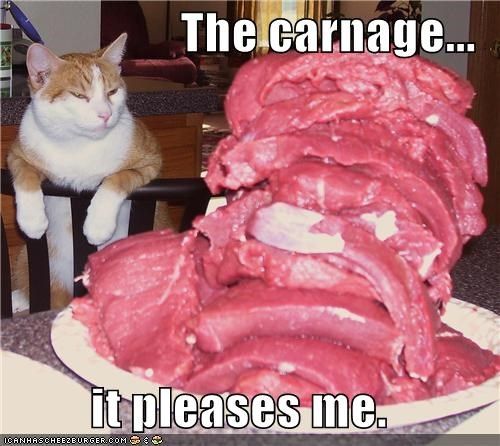
To be clear; Ghosteen, the record that actually might have been about the death of Nick Cave’s son (though Cave himself has maintained that the songs are no less character driven than the rest of his catalog), is not a bad album. It’s certainly not bad art (whatever my assessment could even matter or what “bad art” might even mean). The record is unassailable lovely. There’s singing on it that made me cry, sung in an atypical falsetto that I believe would be just as effective divorced from any attached narrative of loss. But I also won’t overrate in the name of that prevailing narrative. Nor will I, being careful not to throw any friends under the bus here, cop to being alone in my ambivalence. I don’t know anyone who fucks with Ghosteen, either as entertainment or as meaningful art to be endured in the name of truth and beauty. It’s not the raw, tragic power of Ghosteen that makes it difficult to get through. It’s more that the album’s tragic beauty kind of dawdles. The narrative, which Cave neither asked for nor panders too, is terrible; so terrible that it serves as a mirage of tentpoles in an otherwise lovely and rolling plain. Ghosteen is not an album for people who look to Cave’s music for sublimity and wit and profane transcendence. It’s an album for people who look to Cave’s blog for those things. At the risk of veering further into the territory of being a complete and utter prick; Ghosteen is an album for new-to-the-game critics and voyeurs. Here was Cave as writers always wished him to be: sincere, free of problematicism and profanity, invested in personal, rather than existential, tragedy, making music that one could disappear into one’s headphone with, or even play in the background while one graphically designed. It was as if Nick Cave had signed to Jagjaguwar. Not that there’s anything wrong with atmospheric sorrow sung plaintively. But previously Cave had done his thing and Jagjaguar signees had done theirs. Now, flattening of the borders of the landscape that Cave & Seeds used to reside within (raunchy doomed crooning, ‘70s Stones piano lines, funeral disrupting polyrhythms, clamoring guitars wielded in the service of sleaze and spite, a general sense of Vaudevillian despair, romantic possibility, and cheap suit scumfuckery) led to a spilling over of the reverence previously reserved for Bon Iver and his essentially harmless ilk. Pitchfork *extreme The Flys voice* got Nick Cave (and Co.) where they wanted.
Nice that the list-makers came around, but there was still something pernicious to adulation. If zombies didn’t want everyone else to be zombies too, they’d just be messy eaters like the rest of us.
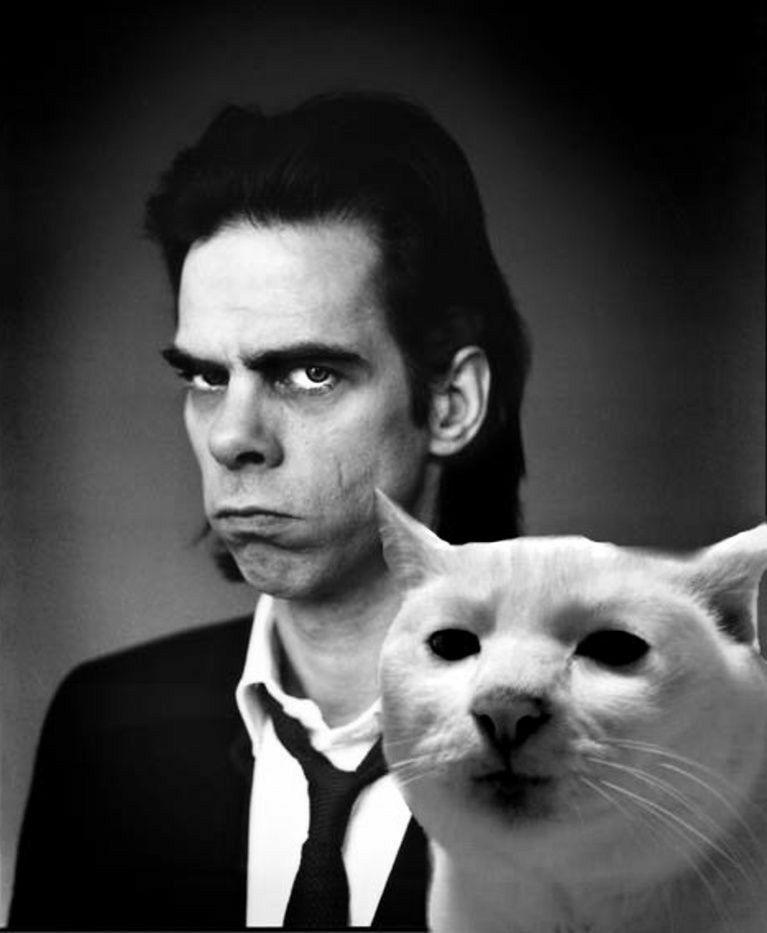
Of course, I held all these positions in regards to Ghosteen before my mother died. Being forty-five, and operating within the social milieu that I chose so many years ago, after hearing Nick Cave and The Bad Seeds for the first time, I’ve as long a laundry list of dead peers and friends as anyone who embraces a lifestyle built upon the romanticization of tying off till fuckin’ wings burst out yr back and the ritualized releasing of bats could reasonably dread/expect. But, before mom went in January, I hadn’t suffered a loss that could even be sanely compared to that of Cave’s. (To be clear, some would say that the loss of a child is worse than the loss of a parent. I don’t think anyone here wants to get in an arms race about though, so let’s not.) Now that I’m serially sad, perhaps the album might click. No dice. I still struggle to relate. Not because I can’t relate to grief but because I don’t want to, relating is not what I want from art, so I struggle against that. I don’t know exactly what I do want from art, but it’s not that. Or maybe, setting aside any high minded delineating of modes of processing through art, it just comes back to choruses. I need the comfort of a catchy hook to truly fuck me up.
If my digression on the topic of soundtrack was a long way to get to Ghosteen, my discursive argument on the topic of Ghosteen was my long way of getting to this incredibly short story:
When I first listened to Carnage, I immediately texted a friend and fellow Nick Cave fan. I wrote “how relieved, on a scale of 1-10, are you that the new Nick Cave doesn’t suck?” He answered with a simple “9.” I texted back, “same.” The End.
The relief that Carnage is solid, potentially to be determined by time as “great,” is something I feel in my bones. Again, this is not to diminish whatever profound sense of transcendence others might derive from either Cave’s last album or his newsletter. Bully for those people. But, while Carnage is definitely a Warren Ellis co-joint, and one entirely free of the potential hip-shake influence of any of the other Bad Seeds, it’s also a welcome return to the at-least occasionally driving song explorations of Skeleton Tree. Being as much a fan of the band as I am the man who fronts it, of course I’d prefer if these songs were propelled by the peerless Bad Seeds rhythm section. And of course I think the songs would be stronger from the inevitable tempestuous democracy inherent to all bands, even one with so strong-willed a frontman. But I’ll happily concede that the lockdown-inspired openness of the songs on Carnage rarely results in aimlessness or anything (I find to be) overly self-indulgent. Cave sings in some of the same repetitive phrasing that he’s been exploring over the last two Bad Seeds records, but here the repeated phrases, over instrumentation that thankfully prioritizes movement over atmosphere, convincingly alternate between meditative and magnetic calls to prayer. Others may find the occasional matching in phrasing between voice and instrument to be too nursery rhyme-y, but I dig it, the way the matching balances out whatever inclinations the song/songwriters might have to drift. The songs may travel as far as a permissive Cave and Ellis allow, and that allowance might be as improvisational and free spirited as any of the two men’s recent work, but the songs on Carnage are also, like Skeleton Tree’s better extended workouts, grounded by their visible points of departure. Meaning they’re strange, not obscure. Meaning I don’t get lost in them like homework.
Lyrically on Carnage, Cave continues the shell game he’s been playing since Push the Sky Away, where every song is in the first person, but with no promises offered that the “I” in the song is the singer himself. I mean, the songs on the new album certainly seem to be from one Nick Cave’s particular perspective. There’s plenty of meta references to Cave’s classic preoccupations like southern gothic literature and his newer concerns like protest culture. But I’m happy to report that the listener cannot be absolutely sure of every viewpoint stated. The John Berryman influence (as expressed in albums like Henry’s Dream and Dig, Lazarus, Dig!) has lessened to make room for the influence of the fatalist aristocracy of old within-the-empire skeptics/adherents like Phillip Larkin and (maybe?) Frederick Seidel; there’s increasingly a whiff of Dissipated White Duke to Cave. So, in “White Elephant,” the choice of “Nick Cave” The Narrator to see the statue-kicking-over protesters point of view, rather than going further down the “just asking questions about antifa” Persuasion route Nick Cave The Person has hinted at, is a visceral relief. Not to say he’s strayed from his Wildian commitment to the artist being as loudmouthed as he wants to be. I’m sure he hasn’t. And I don’t necessarily entirely disagree with the semi-absolutist view of free speech Cave has endorsed in Red Hand Files. My position is less any particular principle and more a determination to not be in the same room, even just ideologically, with the Intellectual Dark Web-bers of the world. Ever. Their watery eyes and insubstantial hairdos. The kind of haircuts that indicate a triviality of purpose and spirit. I just can’t stand any of those fuckers. The cut of their collective jibs offend me. Cave may or may not agree. Let’s do ourselves a favor and say he does. Objective truth, after all, is whatevs.

Once upon a time, it was impossible to talk about Nick Cave without talking about sex and death, but in either and equal order. Album after album (after album) dove deep and deeper into the two things the human body, on a cellular level, is obsessed with. Nick Cave took obvious pleasure in exploring life cycles entirely devoid of such prosaic concerns as not fucking, not killing, and not dying. Messy in, messy out: his characters rarely just sat down to eat lunch. There was plenty of religious imagery of course, even as a high-haired rascal howling about “rats in paradise,” even when Cave was potentially the farthest from God’s light (shooting up in Mark Lanegan’s living room). But Cave’s religiosity was, no matter how many pianos he threw at it, largely carnal. A God of Sex and Death (arguably the same god as “God” God... but that’s a separate discussion). Plenty of angels and halo hootenanny abounded, but the man was never shy either about offering the devil a tugger. That’s the advantage of not believing “in an interventionist God.” Just look what the Cat In The Hat got into. And the mother in that good book had just stepped out for the day. The absent mother’s insistence, at the book’s end, of a voluntary confession from her abandoned children hints at damnation’s looming possibility reminiscent of Cave’s late ‘80s work. In 1988’s Tender Prey the fate of more than one of Cave’s protagonists (be it the inevitability of capital punishment in “Mercy Seat” or the literal snatching of a murder’s soul in “Up Jumped The Devil”) certainly indicates that someone in Cave’s cosmology is interventionist. Again, something for a separate discussion. I digress. The point is that when Cave sang, in the voice of the mythic killer Stagger Lee, “I'm a bad motherfucker, don't you know/ And I'll crawl over fifty good pussies just to get one fat boy's asshole," he was succinctly expressing a threadline ethos; existence as a journey through, and over, however many good pussies, and, at the end of every life: the fat boy’s asshole of the grave. What came after that was only for Stagger Lee and his victims to know.
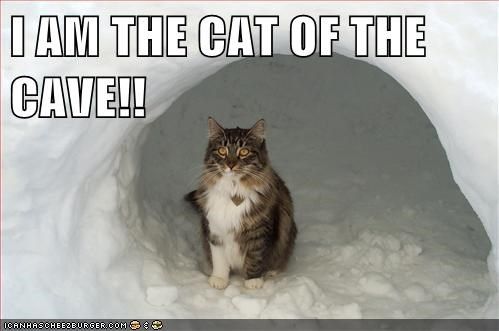
Now, when we consider Nick Cave’s contemporary work, sex is still death’s pairing, but it trails death by a country mile. And the question of What Comes After has gone from insistent third wheel to being an active and full partner in the singer’s existential throuple. While violent death is threatened on “White Elephant” and sex is alluded to on album closer, “Balcony Man” (not overtly, but he calls his honey-bunny “languid” for God’s sake!), almost every song on Carnage resolves itself with the promise of the Next World. If the God of Nick Cave’s cosmology is still non-interventionist in this life, the deity’s architectural chops in the next are portrayed on Carnage as a given.
I don’t know how much I’m actually buying all this string drenched hope. Which I mean as an enormous plus. In the album’s recurrent use of choirs, not to mention the knowing reference to copping from Flannery O'Connor, there’s an echo of the old Nick Cave. The one who used blues traveller tropes willy nilly to signify that extremely heavy shit is at hand. If there is now more gospel praise than Muddy Waters, that’s just a different poison to the same end. In tonight's show, the role of Fat Boy’s Asshole will be played by a host of cherubs. I’m glad for the ambivalence. If you didn’t read his blog, which continues to (compellingly) insist on the unifying essentialness of a universal goodness, with Christ as its metaphor, you’d think there was some performance at play here. Rock music even; with all the razzledazzle and glorious horseshit the medium, at its best, requires. Not that I’d ever say that aloud. Though saying it is neither diminishment nor even qualifier of the potency of metaphor. So when Cave + Choir sings, at the end of “Lavender Fields,” that “there is a kingdom in the sky,” it can be taken as hope and it can be taken as trope and it can be taken a statement of fact, undercut by the meagerness of our current state of affairs that necessitates that better next world. In Rock and Roll, and in all the genres under that umbrella, not only does something not need to be true to be true, it doesn’t even need to sound true to be true. Sometimes fakery is the tool we need to get where we need to go! I don’t believe it’s a coincidence that the choral resolution of “White Elephant” pulls from the same esoteric hum that makes up the chorus of The Rocky Horror Picture Show’s “Over At The Frankenstein Place.” The Tower of Song, which Cave has been a proud tenant within all his career, tilts to the truth sideways, just like that bad mamajama on all the postcards.
Every Christmas, since my sister and I were young enough to vocalize want loudly, my Jewish mom got a real tree. And she was never not Jewish (or agnostic) (or Jewish, depending on her mood). And every year, since I was a teenager, my Jewish ass put a different Nick Cave song on her yearly Jewish Agnostic Christmas mix CD. So if Nick Cave wants to use Christ as a metaphor for essentialized potential for human kindness, and then he wants to drape that fucker in a shit-ton of tinsel and baroque angels, I’m with him all the way.

As with listening to Nick Cave’s increasingly chief influence, Scott Walker of any era, Carnage must be taken with absolute seriousness. Absolute seriousness. But also maybe not. Even if Nick Cave is as susceptible as anyone would be to the worshipful earnestness with which his art has been received as of late, I have to believe he’s retained his inherent slyness. If the trackmarked boy in a threadbare “I Hate Every Cop” t-shirt, who once implored a nameless listener to not “drag the orchestra into this thing,” is now a bespoked elder statesman who doesn’t leave the house without a full coterie of heavenly brass, I have to believe that the two personas are a continuum, not a break. So, while mourning the absence, on Carnage, of the full Bad Seeds band, like I would a phantom limb, I’ll happily say Nicky Showbiz is back. And he means every word. All of Warren Ellis’s violins tell me so. Lock up (or miss) your mothers.
Thanks for reading!
